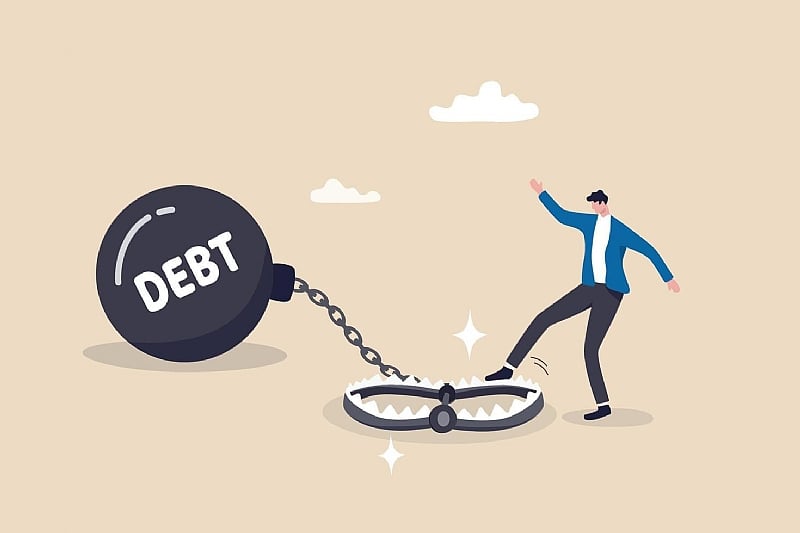The rise of Buy Now, Pay Later (BNPL) services in African cities like Accra, Ghana, signifies a significant shift in consumer behavior and financial landscapes. Once primarily associated with larger purchases like electronics or vehicles, BNPL has permeated daily life, financing everyday necessities like food, school supplies, and even healthcare. This trend is driven by increased smartphone penetration, the prevalence of informal economies where traditional banking is less accessible, and the aspirations of a young, urbanizing population eager to embrace modern lifestyles. While BNPL offers a seemingly convenient solution for immediate needs, it raises concerns about the normalization of debt for survival and the potential for long-term financial instability. This burgeoning reliance on credit for essential expenses is transforming the traditional role of credit from a tool for investment and growth to a mechanism for managing basic needs.
The popularity of BNPL in Africa is fueled by several factors. The widespread availability of affordable smartphones and mobile internet access provides a platform for digital marketplaces where BNPL is seamlessly integrated into the checkout process. For those operating within informal economies, often excluded from traditional banking systems, BNPL offers a readily available alternative for accessing goods and services. Furthermore, the desire for a modern lifestyle, particularly among younger generations, makes aspirational spending more attainable through these easily accessible credit options. While this rapid adoption of BNPL fuels economic activity, it simultaneously creates a precarious situation where a significant portion of the population becomes reliant on fragmented, deferred payments to maintain a semblance of normalcy. This dependence on short-term credit solutions potentially creates a cycle of debt, impacting individual financial well-being and the overall economic resilience of urban centers.
The normalization of debt for essential living expenses represents a fundamental shift from the historical purpose of credit. Traditionally, credit facilitated investments in assets like homes, education, or businesses, contributing to long-term financial stability and growth. The increasing use of BNPL for immediate needs, however, risks creating a class of “credit-dependent citizens” perpetually juggling micro-debts. This constant financial juggling act hinders the ability to save, absorb financial shocks, and plan for the future, ultimately undermining individual and societal economic resilience. The widespread adoption of BNPL, while offering immediate access to goods and services, can lead to a cycle of debt that hinders long-term financial stability. This reliance on credit for essential expenses can erode savings, suppress consumer confidence, and contribute to increased financial stress and anxiety.
The implications of widespread BNPL dependence extend beyond individual households, impacting the overall resilience of urban communities. When a substantial portion of the population is burdened by debt, it creates cascading effects on the local economy. Reduced household savings leave families vulnerable to unexpected expenses, limiting their ability to invest in the future and build long-term wealth. This financial fragility translates to weaker consumer confidence, impacting businesses and hindering economic growth. The constant stress of managing debt can also take a toll on mental health, impacting productivity, relationships, and overall well-being. Furthermore, individuals caught in a cycle of financial survival often have limited time and resources for civic engagement, weakening social cohesion and community development.
To mitigate the risks associated with BNPL and promote responsible credit practices, a multi-pronged approach is necessary. Regulators must implement policies that ensure transparency and protect consumers. This includes capping effective interest rates, often disguised as service charges, and mandating clear, easy-to-understand contracts. Integrating repayment data into credit bureaus can help establish credit histories and facilitate access to more formal financial services. Promoting “Earn-Save-Spend-Later” platforms can encourage responsible financial habits and shift the focus from borrowing to saving. Public financial literacy campaigns are crucial for empowering individuals with the knowledge and skills to make informed financial decisions and manage debt effectively.
Addressing the cultural normalization of debt requires a broader societal shift in values and perceptions of success. Promoting financial prudence, celebrating savings and responsible financial management, and redefining markers of achievement beyond material possessions are crucial for fostering a culture of financial well-being. Community leaders, religious institutions, and media platforms can play a significant role in shaping these cultural narratives. By showcasing alternative paths to financial security and highlighting the benefits of long-term planning and saving, communities can begin to dismantle the allure of instant gratification through debt and build a more sustainable foundation for individual and collective prosperity. This cultural shift, coupled with responsible regulation and financial education, is crucial for harnessing the potential of BNPL while mitigating its inherent risks and building a more resilient and equitable financial ecosystem.














